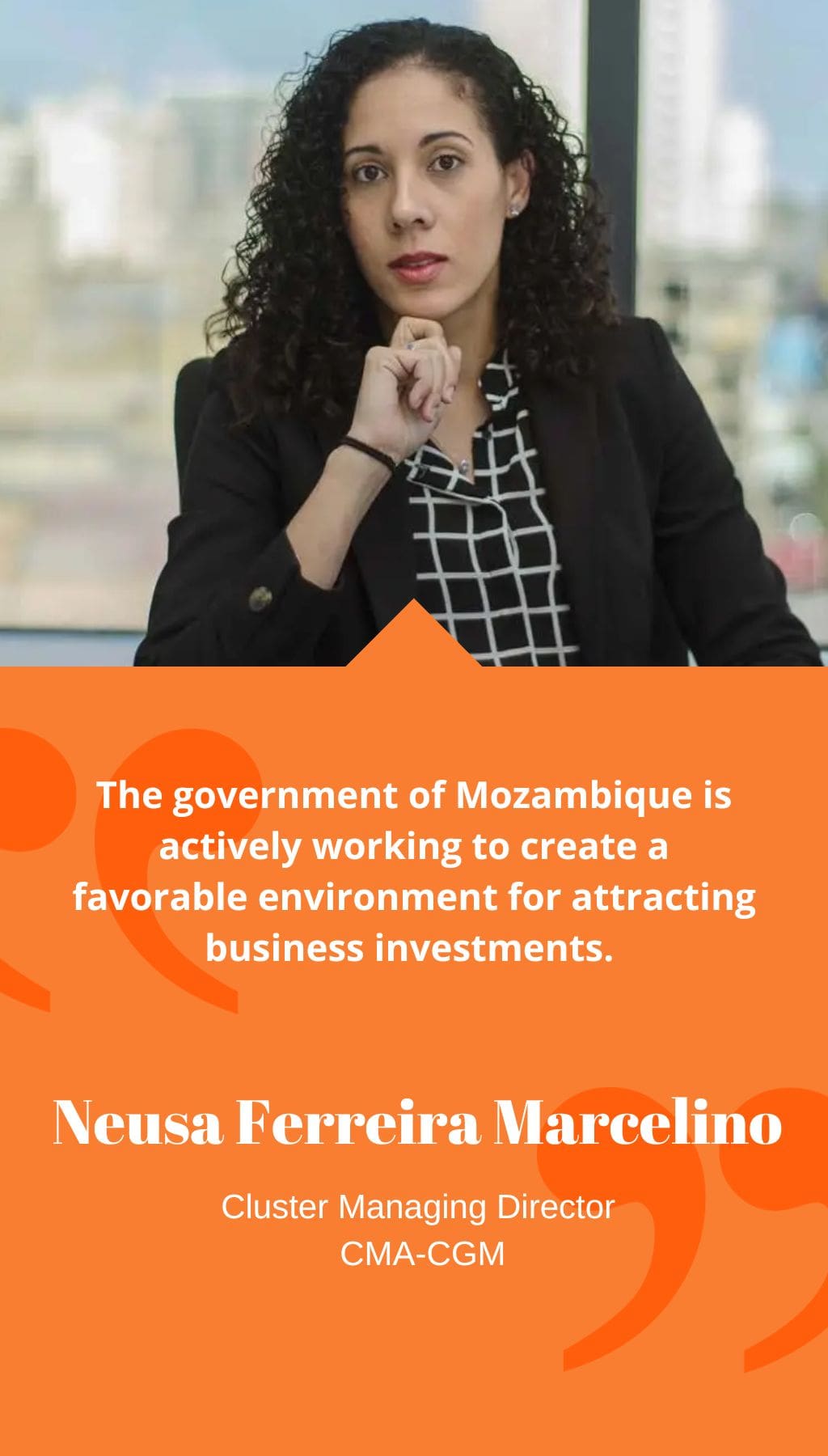
- Mozambique | 24 June 2018

What is the significance of Mozambique for your group, and why do you consider it an important country?
Mozambique holds great importance for our group due to its strategic geographic location and its position as one of the fastest-growing and largest economies in the region. We have experienced productivity and profitability in the past years, making it a key country for us.
Could you provide details about your services in Mozambique and the success you have achieved so far?
We operate a service that connects Maputo, Beira, and Nacala, linking Mozambique to the Far East. This service has been highly successful, prompting us to introduce another service connecting Nacala and Beira directly with Jebel Ali in the Middle East. We have aggressively positioned ourselves in all five main ports of Mozambique, although we had to close operations in Pemba and Quelimane in 2017. However, we are closely monitoring the conditions and are ready to return when the time is right. We have a keen interest in the oil and gas sector and have been closely observing its developments.
Are you planning to resume operations in the oil and gas sector next year?
The situation regarding oil and gas is currently unclear, and we are uncertain about resuming operations in that sector next year. During my recent visit to Nacala, local authorities mentioned that it had been nominated as a hub for oil and gas activities. However, we still don’t have concrete information and are unsure if it’s just a rumor or a confirmed plan. The port of Nacala is investing in its facilities, which indicates a positive outlook. As for Pemba, its small size and shallow waters prevent us from calling our main liners there. If there are developments, it would require significant investment.
Is Mozambique’s infrastructure ready to meet the upcoming demands of oil and gas projects?
In terms of ports, both Maputo and Beira are prepared for the upcoming needs of oil and gas projects. Beira is investing in expansion and equipment, while Maputo is also expanding its terminals. Nacala, being the deepest port in Mozambique, is strategically located for such projects but still needs further development. They have a master plan to expand the terminal and quays to accommodate larger vessels. However, Pemba would require substantial investment to handle projects of that scale.
Do you expect the investment for infrastructure development to come from the private or public sector?
The investment source depends on the government’s strategy. It would be appropriate to involve specialized companies through concession arrangements as they possess the necessary expertise and business development capabilities. The government has discussed the options of expanding the existing port and terminal or creating offshore platforms in Pemba. Currently, the government’s involvement in investments is unclear, but it’s likely that foreign investment will be required to realize the plans.
How would you describe the investment climate in Mozambique?
The government of Mozambique is actively working to create a favorable environment for attracting business investments. Over the years, I have witnessed significant changes in the industry. While there is still room for improvement, the government acknowledges the need to develop infrastructure, such as roads, rails, and ports. They prioritize these projects by collaborating with partners and modernizing processes through digitalization. Mozambique is on the right track to facilitate investment and improve its business environment.
In terms of competition, how does Mozambique compare to other regional countries?
Mozambique may appear large, but it is relatively small compared to countries like South Africa. In our business, Mozambique is similar in size to Kenya and Tanzania, which are the main competitors in terms of countries with port facilities. Mozambique is currently in a phase of rapid growth and development, with enormous potential, which makes the market highly competitive. Although the market is smaller compared to some other regions, it presents challenges due to its specialized niche and rate-driven nature. Logistics in Mozambique are complex, with numerous competing companies operating in the same corridors, making it crucial to balance service quality and competitive pricing.
What are your future goals in Mozambique?
Our future goals involve continued growth and the development of corridors in Mozambique. We are exploring the possibility of establishing a route from Nacala to Zambia, expanding beyond the Nacala-Malawi corridor. To sustain our group, we believe that delving deeper into inland networks and specializing in this direction will make a difference. Additionally, we are investing in the northern region, particularly in oil and gas logistics, to leverage the opportunities presented by anticipated projects. Mozambique’s potential as a logistics hub during the deployment phase and beyond creates significant opportunities for us.














